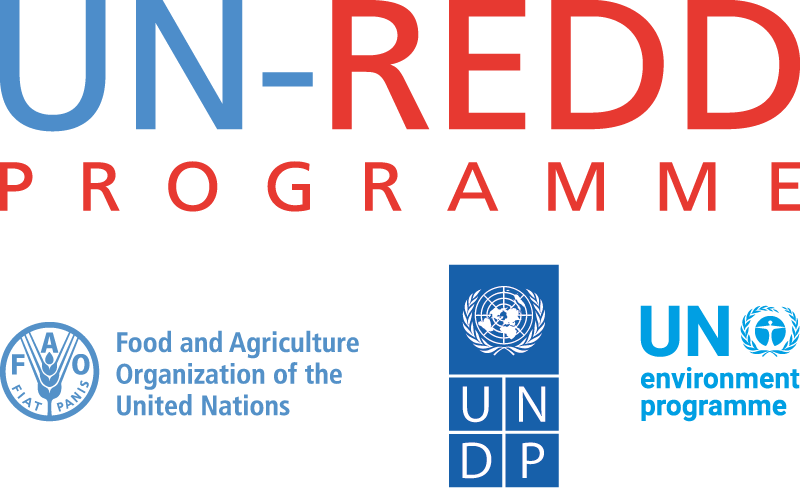PROGRESS AGAINST THE WARSAW FRAMEWORK
NS/AP: Colombia strengthened the implementation of its REDD+ Strategy through the approval of the GCF RBP REDD+ proposal for $28.2 million, its inputs on deforestation to the National Council for Economic and Social Policy (CONPES), and the increased mitigation ambition from reducing deforestation in the updated NDC, with technical inputs and support from UN-REDD.
FREL/FRL: Colombia was in the assessment process of an enhanced FREL during 2020, technically supported by UN-REDD (FREL Convention), moving forward from subnational to national level. The assessment process will conclude in the first quarter of 2021. A South-South exchange between Colombia and Peru was organized under the title Forests Reference Emission Level (FREL): from subnational to national approaches”.
NFMS: Colombia continued to improve its NFMS, including the development of a proposal for monitoring restoration at the national level supported by UN-REDD, South-South exchange on restoration monitoring between Guatemala, and the strengthening of the institutional community monitoring board led by the Institute of Hydrology, Meteorology and Environmental Studies (Instituto de Hidrología, Meteorología y Estudios Ambientales, or IDEAM).
SIS: Colombia has strengthened the safeguards information currently available at its RENARE platform (Registro Nacional de Reducción de Emisiones de Gases Efecto Invernadero, or National Registry for the Reduction of Greenhouse Gas Emissions) by developing a draft template for collecting safeguard information and a list of potential safeguards requirements for REDD+ projects and programs, supported by UN-REDD.
REDD+ IMPLEMENTATION
Colombia is progressing in the implementation of the REDD+ Strategy through several initiatives supported by UN-REDD:
CHALLENGES AND SOLUTIONS
The COVID-19 health emergency has caused delays in participatory processes and related activities. The programme faced this challenge by restructuring its delivery to virtual modalities. As a consequence, the number of face-to-face meetings and consultations was drastically reduced and the Programme adopted a methodology to support communities through virtual meetings, phone calls, chats, and other online follow-ups.
More than 30 virtual dialogues between indigenous authorities and government personnel were organized, and a protocol of remote assistance for field actions was established. Also, several online pieces of training and webinars were held.
Another important challenge was the lack of sufficient funds to increase the scope or scale up the planned activities in the field. To address this issue, the programme reviewed and prioritized the activities and the use of financial resources to maximize the impact (e.g. improvements in NFMS, key issues in the social participation process, and linking SIS with RENARE). Many virtual meetings took place too and allowed the actor dialogues supported by UN-REDD.
GENDER AND SOCIAL INCLUSION
Applying UN-REDD developed gender tools, the Environment Ministry integrated gender-responsive approaches throughout its work on REDD+ in 2020 and recognized its key role in achieving community forest management.
In this work, the country incorporated and systematized the different elements of ethnicity, gender, and generational approaches in the implementation of community forest management actions, such as those related to capacity building, tool development, and stakeholder engagement activities. These efforts, among others, have resulted in:
1) increasing women’s participation in community forestry from 15 percent in 2018 to 40 percent in 2020;
2) addressing gender gaps at the community level, and
3) the integration of a gender perspective in the national guidance for community forestry management.
Based on the main actions implemented with a gender perspective in community forestry, the following results were achieved:
In 2020, Colombia renegotiated the Joint Declaration of Intent (JDI) (2015), to incorporate a new scope for the period 2021-2025 and the adaptation of milestones associated with ethnic groups. Colombia also made progress in the implementation of the JDI, restructuring the line of financing for ethnic groups ($4.8 million), and strengthening local technical capacities.
The Environment Ministry created a space for sharing experiences and best practices (more than 20 virtual meetings) on the implementation of the commitments of the National Development Plan, especially those associated with the management of forests and deforestation. In parallel, the Environment Ministry and indigenous organizations strengthened their capacities and developed the decree that stipulated the NIEC to discuss measures and actions associated with reducing deforestation and managing forests in indigenous peoples’ territories.
PARTNERSHIPS
Colombia’s capacities to implement community forest management were strengthened and articulation was promoted between actors in the process (FCPF, Global Green Growth Institute,
Probosques, the Andes and Central American office of French conservation organization Office National des Forêts ONF Andina, and others) and with the approval of the GCF RBPs REDD+ proposal for the Amazon Region. Furthermore, the technical capacities of indigenous leaders and authorities were strengthened by the formulation of three projects to be implemented with the third grant from the FCPF in 2021 (around $950,000).
LINKAGES TO SDGS
The activities developed contribute indirectly to achieve some advances of SDGs 5, 8, 12, 13, and 15.









